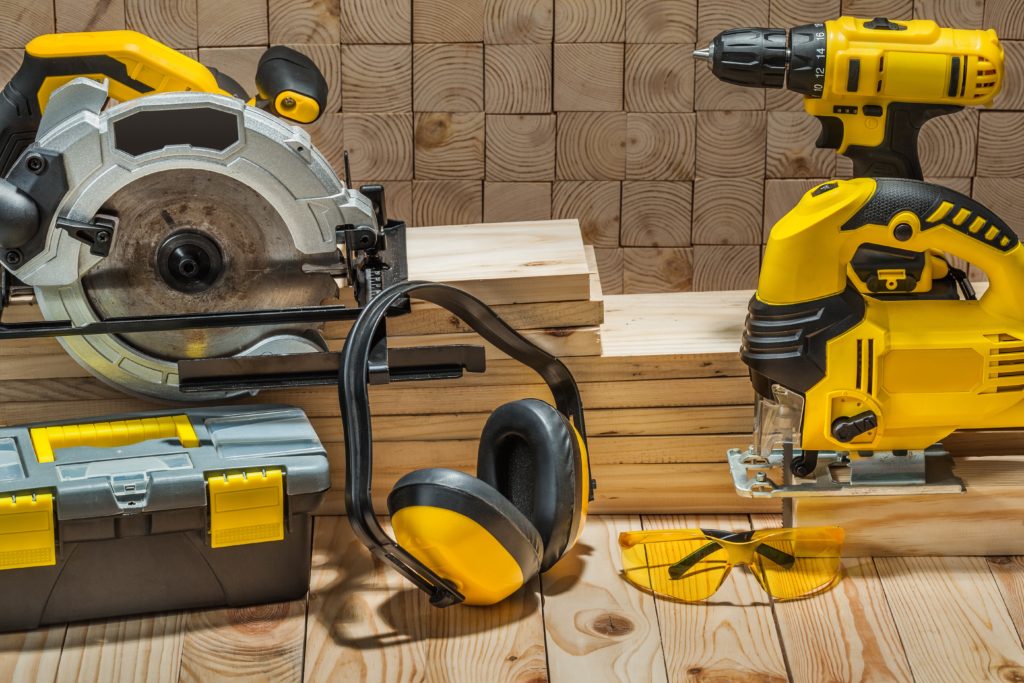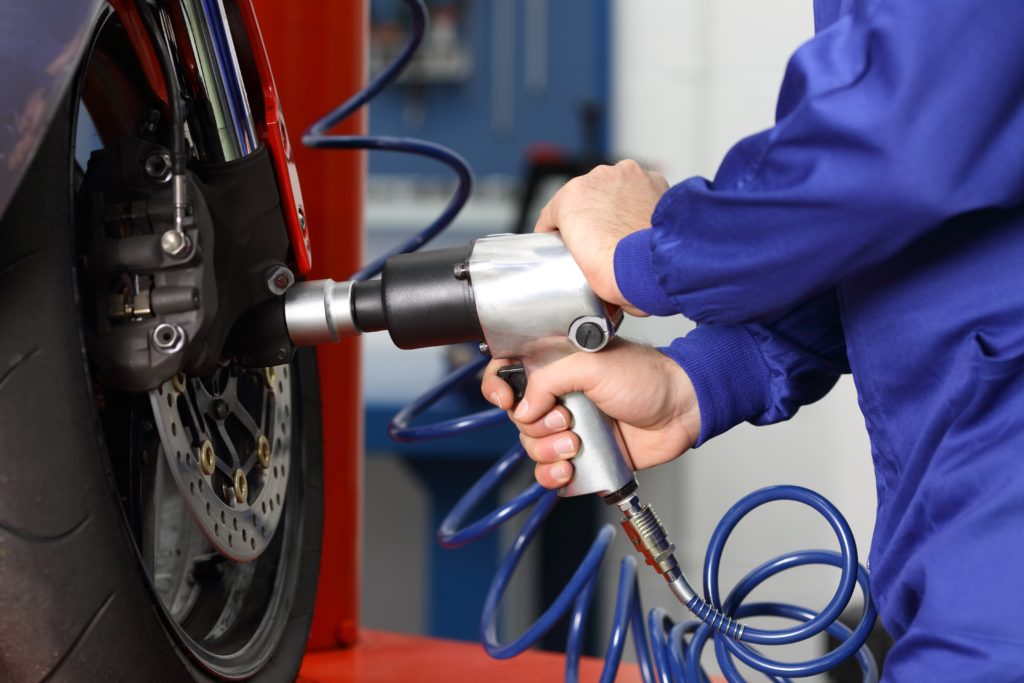Air Tools vs. Electric Tools: Discover 5 Pros & Cons
Let’s get ready to rumble! Today in the ring, we have air tools squaring off against electric tools. In the last match, pneumatic tools were superior in just about every category of comparison. But electric power tools have air tools in a headlock and are not letting go. Will pneumatic tools hold their ground, or will electric win the pin count? Check out our guide on air tools vs. electric tools to see the showdown of the century.

What’s the Difference between Pneumatic Tools & Electric Tools
The primary difference between pneumatic vs. electric tools is their power supply. As the name suggests, pneumatic tools are powered by air, while cordless power tools get their drive from battery packs. But power isn’t the only makings of a heavyweight champion. Indeed, there are many more characteristics we’ll be seeing face-off in the rounds to come.
Round 1: Performance
In speed, power and torque, pneumatic tools are still best in their class. Because they draw their strength from air, they are faster, more powerful and drive at higher torque, delivering more hits and revolutions per minute than their battery-powered opponent.
But don’t take electric tools out of the running just yet. With technology advancing every day, battery packs are getting lighter, more powerful and holding their charge longer than ever before. With some training, electric tools just might make a comeback yet.
Round 2: Power Supply
The benefit of a pneumatic air system is the near-limitless power supply unless you attach a tool that exceeds your compressor's CFM requirements. That means you'll never be slowed down by capacity loss or weakening, which can be a problem with some power tool batteries.
However, a downside to air tanks is they can be cumbersome and difficult to transport, cluttering the job site and posing a tripping hazard. In addition, you’ll always have to mind your tail and keep an eye out for power outlets unless you own a gasoline-powered compressor.
This is also a consideration with battery-operated tools, which hold a limited charge, supplying anywhere from 30 minutes to 8 hours of continuous runtime. As it turns out, this problem can be circumvented by having several batteries on rotation, but they're expensive, and this doesn’t necessarily work if outlet crowding is an issue at your job site.

Round 3: Longevity
In general, air tools tend to last longer than electric ones because there are fewer moving parts, and they are easier to service. Indeed, pneumatic systems that receive heavy-duty use can be expected to last anywhere from 5-10 years if adequately maintained.
On the other hand, even though power tool batteries nowadays are made with built-in overload, thermal, and over-discharge protection, they still only last an average of 1-5 years.
Round 4: Weight
Another advantage of air tools over electric tools is they are considerably lighter because the user does not have to carry the added weight of a mechanical motor and power bank. This tradeoff appeals to mechanics, construction workers and other professional tradesmen who use their tools consistently over long hours. For small tasks or odd jobs, however, the convenience and mobility of a cordless tool might convince a ref to look the other way.
Round 5: Cost
Pro rata, air tools are significantly cheaper but require a steep upfront cost for the air compressor. They range from as low as $200 to as high as $70,000, depending on performance ratings, tank size, pump type, and whether it's stationary or portable. The upside is the power tools themselves are cheaper and tend to last longer.
In comparison electric tool batteries cost anywhere from $20 to $200. Although more expensive per unit, most batteries are made to be interchangeable. Meaning, if you buy from the same brand, you can save on the batteries and buy the bare tool instead.
Air Tools Vs. Electric Tools Chart
Determine which is the winner below by putting them up against each other and comparing them to what you need:
| Air Tools | Electric Tools | |
| Performance | ✔ | |
| Power Supply | ✔ | |
| Longevity | ✔ | |
| Weight | ✔ | |
| Maintenance | ✔ | |
| Cost | ✔ | |
| Convenience | ✔ | |
| Professional | ✔ | |
| DIYer | ✔ |
